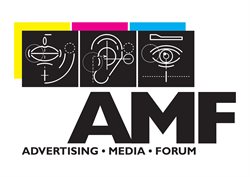
Top stories




Marketing & MediaAds are coming to AI. Does that really have to be such a bad thing?
Ilayaraja Subramanian 7 hours


More news


















As we have seen in the past 12 months, the pressure on marketers to report with accuracy and a more robust approach to ROI, ROAS and attribution modelling is making it even more clear that a non-partisan body such as the AMF needs to provide guidance on platforms and channel performance claims and numbers or we run the risk of not only having overstated landscape figures, but more crucially of skewing business strategies and devaluing the importance of the marketing discipline within a business. This pressure shows no sign of abating and will in fact accelerate as we shift into more digital and addressable media channel usage over time. Which means we must be even more critical, and sense check the accuracy of the data supplied by publishers, media owners and platforms.
As the AMF, the one thing we strive to achieve and maintain is credible data as a currency which forms the basis of good media assessment and KPIs. The media landscape has become a myriad of platforms ranging from traditional broadcast channels to various digital media outlets, each with their unique measurement methods and metrics. Consequently, this diversity can lead to inconsistent or biased results that can result in sub-optimal allocation of budgets and impair growth.
As the AMF our view is that we must always take a non-biased view to measurement and ensure that as an industry this is upheld. The importance of good measurement and data practices can be summarised as follows:
1. Facilitating fair assessment of campaigns: A non-biased measurement offers a level playing ground for comparing various ad campaigns, irrespective of the platforms they run on. By standardising metrics and ensuring a non-biased analysis, companies can compare their campaigns' effectiveness accurately. They can then allocate budgets more effectively, ensuring that each rand spent is justified by the return it generates.
2. Driving transparency and trust: Non-biased measurement in advertising promotes transparency and builds trust between different stakeholders. Advertisers, agencies, and publishers can all align on the same metrics, which helps in building confidence and establishing long-term relationships. Moreover, it creates an environment of trust for consumers who feel more confident about the authenticity of the advertisement and the brand.
3. Enabling precise targeting: Advertising is no longer a one-size-fits-all approach. With the rise of big data and AI, precise targeting has become the norm. To evaluate these sophisticated strategies accurately, non-biased measurement is crucial. It allows for the tracking of ad effectiveness across various demographic segments and behavioural patterns, thereby informing future strategies and contributing to successful ad campaigns.
4. Mitigating the risks of ad fraud: With the rise of digital advertising, ad fraud has also increased, leading to inflated metrics that can mislead advertisers. Non-biased measurement can help mitigate the risk of ad fraud by ensuring accurate and objective reporting of ad impressions, clicks, and conversions.
5. Supporting sustainable growth: For a business to grow sustainably, it needs to measure its performance accurately. Non-biased measurement in media advertising offers a way to track growth reliably. By evaluating the effectiveness of various ad campaigns objectively, businesses can learn what works and what doesn't, helping them plan their strategies better for sustainable growth.
In an era where data-driven decision-making is paramount, the importance of non-biased measurement in the media advertising industry cannot be overstated. It acts as a linchpin in ensuring accurate evaluation of campaigns, promoting transparency, enabling precise targeting, mitigating ad fraud risks, and supporting sustainable growth.
As the industry evolves, non-biased measurement needs to keep pace. It's crucial for industry leaders, technologists, and regulators to work together to ensure that the metrics remain robust, fair, and transparent. This is the AMF mandate that we continuously strive to deliver on even as the landscape continues to shift and evolve.
The Advertising Media Forum (AMF) is a collective of media agencies and individuals including media strategists, planners, buyers and consultants through whom 95% of all media expenditure in South Africa is bought. The AMF advises and represents relevant organisations and aims to create open channels of communication and encourage and support transparent policies, strategies and transactions within the industry.
For more information on the AMF, visit amf.org.za.